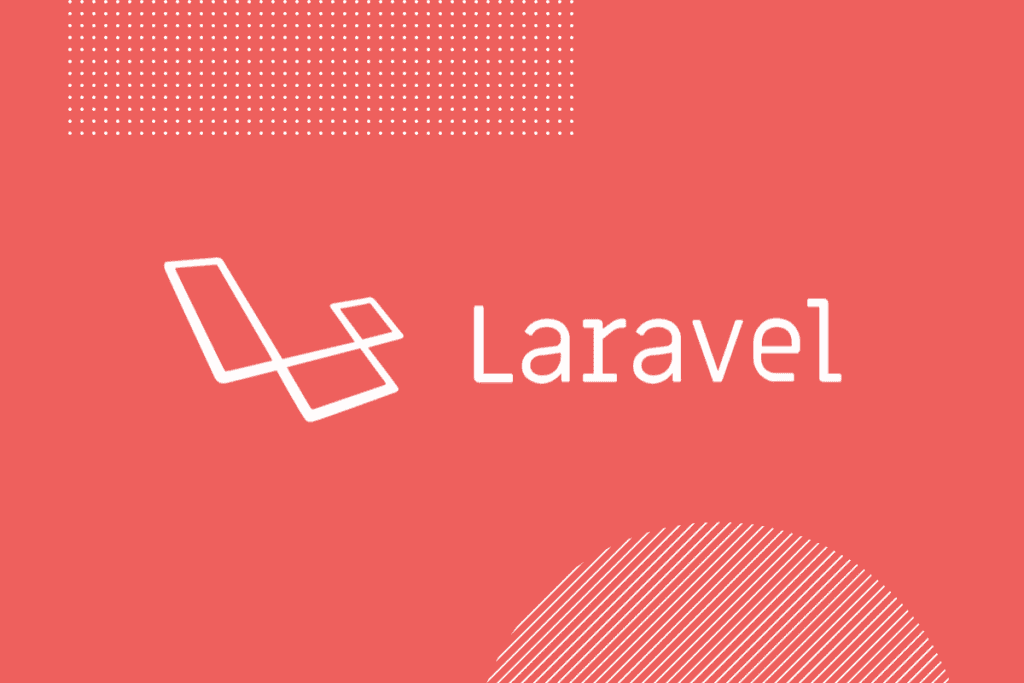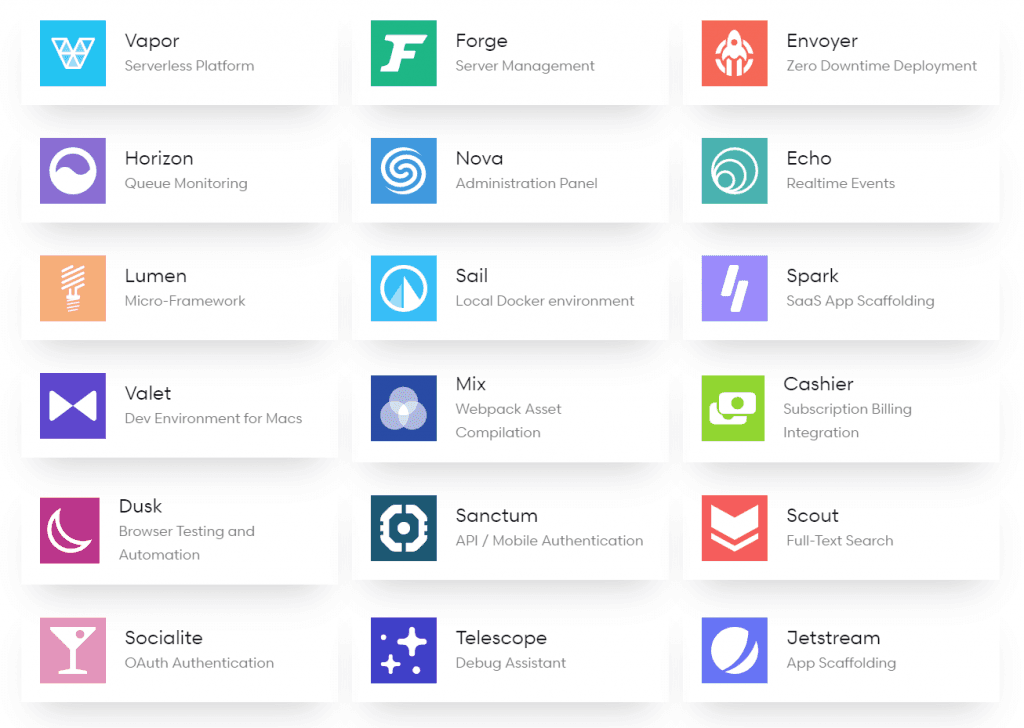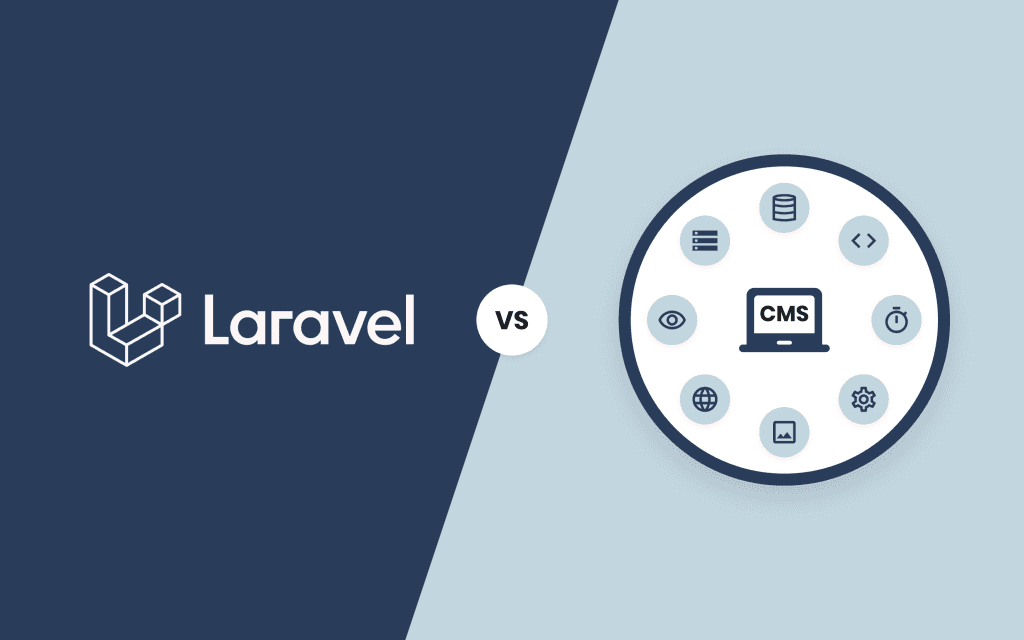Why is Laravel the Best PHP Framework in 2021?
Web Development
Laravel

By Scott Salisbury - Senior Software Engineer & Laravel Aficionado At KOMODO
Laravel is a popular open-source PHP framework that is designed to quickly get you started on building website applications. It is accessible, flexible and robust and can help you write elegant code easily. This article will give you all you need to get you up to speed on what Laravel is, what it isn’t, and highlight the best features that make it stand out from other PHP frameworks.
What is Laravel?
As a PHP framework, Laravel gives you the edge in developing in the PHP language. At the time of writing, the number of active websites using Laravel is over 646,000 and counting. The reason for its popularity is simple. It delivers a fantastic developer experience by automating a lot of repetitive coding tasks via Laravel’s powerful built-in features (see below).
Whether you are an experienced coder or just starting to create more complex applications, Laravel can help you upgrade your approach. That is due to the framework’s additional selection of extensions, community libraries and other tools that all seamlessly work alongside each other.
It typically reduces the time needed to complete projects by removing the need to write everything from scratch. Plus, it will help you write better code as it encourages you to follow best practices and industry standards. The result is more maintainable code that is easier to keep well-documented and simpler to update.
Laravel is expressly PHP. A significant practical advantage of the framework being written in the PHP language is that many developers are already familiar with it. Already using PHP? Then it will be less complicated to acquaint yourself with Laravel and onboard existing codebases and systems into the framework.
Top Laravel Framework Features in 2021

MVC Architecture
Laravel is MVC from the word GO. MVC or Model-View-Controller is the architectural structure employed to separate domain, application and business logic from the rest of the user interface. In turn, it keeps all of your code nicely organised, making it more maintainable and easier to debug.
Artisan Command-Line Interface (CLI)
Artisan is built into Laravel which makes it very easy to create CLIs for your application. An additional feature of Artisan is the large set of code generator commands that makes it faster to build your application. These commands replace the need to constantly write repetitive boilerplate code by generating the files for you from a single command, along with any other scaffolding.
For example, if you need to create a new controller, you can simply use one of the Artisan Make Commands to create it for you. This generated code will have all the correct naming conventions, interfaces, namespaces and boilerplate code already set up. Additionally, it is quite simple to create your own generators for your code if needed.
Blade Template Engine
Another feature that makes Laravel stand out from other PHP frameworks is its template engine. The Blade feature is lightweight and allows developers to create beautifully dynamic layouts - especially if you prefer creating layouts using components. Blade also has a powerful component system, inspired by Vue, and is very easy to integrate into your templates.
Eloquent Object-Relational Mapper (ORM)
Eloquent ORM uses the Active Record pattern and facilitates simple database management and interaction. Each database table is represented as an Eloquent model that makes data easy to interact with and manipulate. Every table has an associated model that is used to interact with the data, this lets you insert, update and delete records from the database easily via Eloquent’s helper methods. Eloquent also makes it quick and simple to set up and query complex model relationships.
Security
Laravel offers outstanding web application security. All passwords are secured by using Bcrypt and Argon2 hashing for storing and encrypting user passwords. Meaning they will never be saved as just plain text. It has a robust, built-in authentication system. All you have to do is set up the database, controllers and models.
Fortify
Laravel also has an optional extension called Fortify which adds full two-factor authentication to your application in just a few minutes, it will also generate all the views and functionality to allow users to manage their recovery codes and two-factor settings.
Sanctum
Sanctum is a lightweight system to allow you to easily build SPAs (single-page applications), mobile applications and simple token-based APIs. Laravel let you do this with minimum friction and a low barrier to entry.
Passport
Passport is a library to provide full OAuth2 authentication, which makes it easy to integrate other software with your Laravel application and consume APIs, it means that other software can easily integrate with the Laravel application even if they’re written in other languages or frameworks.
Socialite
If you are already using existing methods to authenticate your existing users, e.g. login via Facebook, Google or Azure, then this library makes it easy to integrate these services into Laravel. It allows your users to log in without having to maintain multiple accounts and passwords for different apps via your existing single-sign-on services.
What Laravel is not

A CMS?
Laravel is NOT a content management system (CMS). Unlike popular web applications like WordPress, Laravel is its own MVC framework used to build web applications from the ground up. Laravel gives developers much more freedom and flexibility to create more complex pieces of software. When you pitch a CMS like WordPress against Laravel, the standards are completely different.
Laravel follows PSR standards which encourage you to write good, clean and maintainable code. WordPress by comparison is the equivalent of the coding wild west. When projects expand and become more complex within a WordPress site, it becomes increasingly difficult to write code that will go the distance due to the lack of MVC architecture and coding standards. Laravel, therefore, is well-suited to scalability for long-term projects and larger development teams.
That’s not to say that WordPress isn’t a great resource for smaller teams or simpler projects. However, if you are looking to create complex web applications with advanced features and integrations, then Laravel is a great option. It will help the developer team create bespoke, better written and longer-lasting code.
Opinionated vs. Non-Opinionated Frameworks
A controversial debate that rages within the developer community is opinionated vs. non-opinionated frameworks. A common example used in the debate is Laravel vs. Symfony.
Laravel is undeniably an opinionated framework. Opinionated can be advantageous depending on your project needs. Out of the box it provides devs with all necessary tools, libraries, build workflows and configuration, along with plenty of boilerplate code to get started straight away. Laravel doesn’t require the additional installation and configuration of independent tools that typically consume a lot of the project set-up time.
By contrast, Symphony is a non-opinionated framework that enables the developer or development team to choose different libraries and tools to include within the project. For example, they might want to use a different template engine depending on the specific project requirements. However, this additional work will inevitably change the pace and complexity of a project. Usually, it requires more time to decide which components to use and to configure the project accordingly.
Which is best? Well, that comes down to the specific requirements of the project.
Opinionated frameworks make assumptions about how you want to build your project. Therefore, they are a good choice if you’re following a fairly well-established architectural design and you don’t plan to swap out any built-in features anytime soon. Since they come with everything you need out of the box, they can help save time and can also simplify development and deployment workflows.
However, if you know from an early stage that you’ll be pulling out parts of the framework to replace them with different tools then opting for a non-opinionated framework might be a better choice.
The Business Case for Laravel Development
There we have it! Hopefully, you now understand why Laravel is an awesome PHP framework from a developer’s perspective. However, Laravel is also hugely favoured by technical teams and software agencies because of its fantastic lineup of features that a super business-friendly. Here are some reasons why businesses should adopt Laravel as a framework for developing their backend projects:
It's easy to integrate your team into Laravel, particularly if they are already skilled in PHP. The low entry level for the framework plus the short learning curve will see your teams immediately delivering better results on your software projects.
The pre-built extensions, high-quality community libraries and tools can drastically cut development times. So, you’ll be spending less time writing tedious lines of code and more time getting your product ready for the tarmac. Laravel is a framework that ‘gets out of the developer’s way’ to allow them to focus on building your product.
You can develop more complex and bespoke products with advanced features and architecture that something like WordPress isn’t suitable for. Laravel is a great choice when looking to build a long-lasting piece of software that is highly scalable.
Laravel integrates function with business efficiency. It is developed with business in mind, so managing the business logic and its dependencies in your application is made much easier via Laravel’s powerful service container and dependency injection.
Due to Laravel’s immense popularity, learning Laravel could not be easier. The Laravel documentation is easy to browse on the website and there are many other websites like Laracast, video tutorials and blogs which will help you get to grips with the framework.
Working alongside a Co-Creation agency
Whether you are an existing Laravel user or interested in implementing it into your tech stack, we can help. At KOMODO, we’re a safe pair of hands. Our talented backend developers are experienced Laravel development pros. We benefit your team by sharing our knowledge and integrating seamlessly into your projects and you can count on us to critically assess how we can help with your product workflows.

Got an idea? Let us know.
Discover how Komodo Digital can turn your concept into reality. Contact us today to explore the possibilities and unleash the potential of your idea.

Sign up to our newsletter
Be the first to hear about our events, industry insights and what’s going on at Komodo. We promise we’ll respect your inbox and only send you stuff we’d actually read ourselves.






